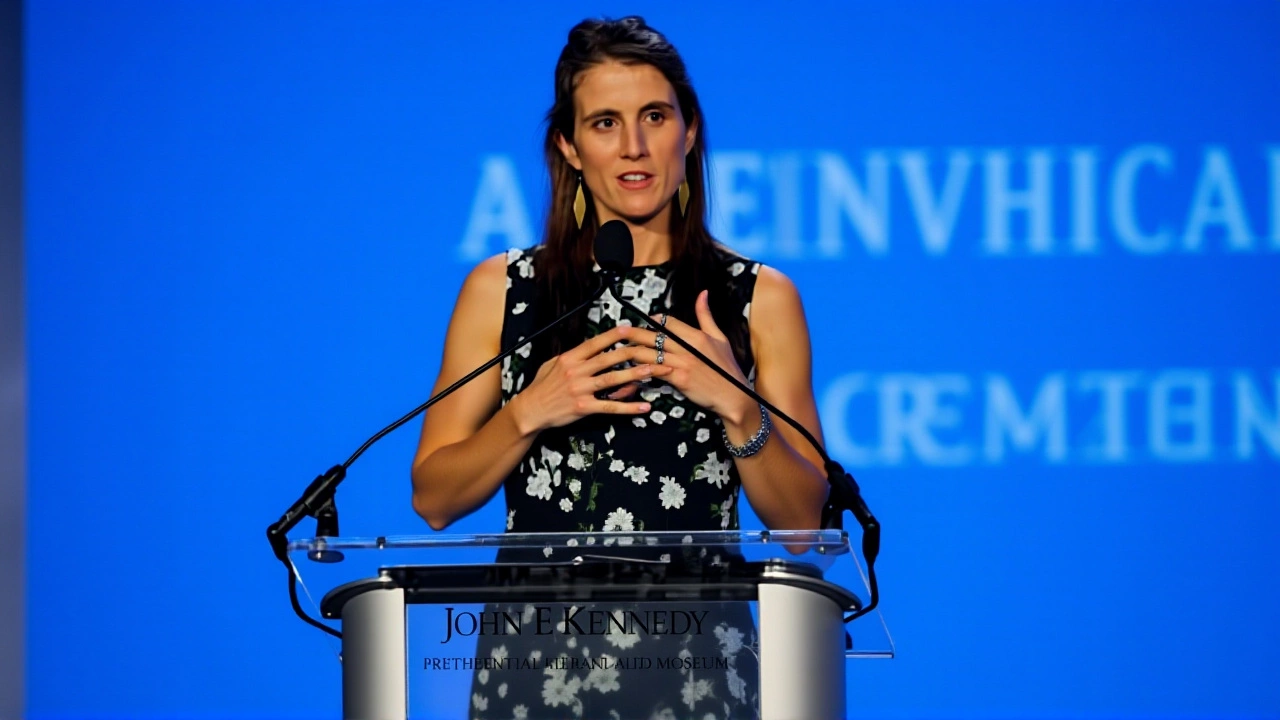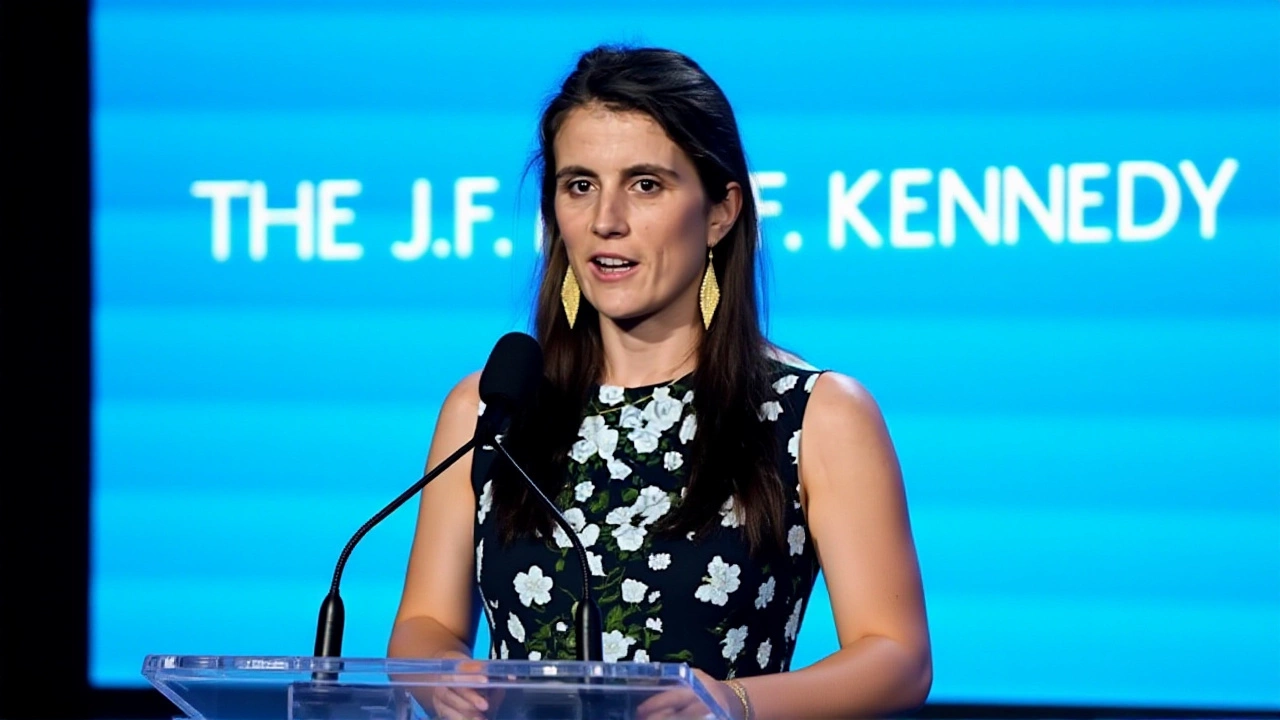On the exact 63rd anniversary of President John F. Kennedy’s assassination, Tatiana Schlossberg, an environmental journalist and author, published a raw, heartbreaking essay in The New Yorker titled "A Battle with My Blood." She revealed she has terminal leukemia — a diagnosis that came after a brief remission, followed by a devastating relapse. The timing wasn’t coincidental. It was a silent echo of history: November 22, 1963, in Dallas. November 22, 2026, in New York. Her grandfather’s death. Her own.
A Family of Loss, and a Daughter’s Guilt
Schlossberg didn’t just write about cancer. She wrote about grief that runs in her blood. Her grandmother, Jacqueline Bouvier Kennedy Onassis, died of non-Hodgkin lymphoma in 1994. Her uncle, John F. Kennedy Jr., vanished in a plane crash off Martha’s Vineyard in 1999. And now, on the same calendar date as her grandfather’s murder, she’s facing the end. "For my whole life, I have tried to be good," she wrote. "To protect my mother and never make her upset or angry. Now I have added a new tragedy to her life... and there’s nothing I can do to stop it." The weight of that line isn’t just emotional — it’s ancestral. The Kennedys didn’t just lose leaders; they lost children, spouses, siblings. Schlossberg carries that legacy not as a public figure, but as a mother, a daughter, a woman who spent years trying to outrun fate — only to find it waiting in her bone marrow.The Treatment That Almost Worked — And Why It Didn’t
Schlossberg received care at Memorial Sloan Kettering Cancer Center in New York, one of the world’s most respected oncology institutions. Her initial treatment led to remission. But remission, as she makes painfully clear, isn’t recovery. It’s a pause. And when the cancer returned, she knew: this was it. "I worried about funding for leukemia and bone-marrow research," she wrote. "I worried about the trials that were my only shot at remission." She didn’t name names in the essay. But she didn’t need to. The context was unmistakable. Her cousin, Robert F. Kennedy Jr., served as U.S. Secretary of Health and Human Services under President Donald J. Trump from 2017 to 2021. During that time, federal funding for cancer research, particularly for rare blood disorders, was slashed. Clinical trials at Memorial Sloan Kettering were canceled. Pediatric oncology grants were redirected. Women’s health programs — including those supporting breast cancer screening and reproductive care — were gutted. Schlossberg didn’t cite dollar figures. But she didn’t need to. When you’re staring down terminal illness, the loss of a single trial isn’t a statistic — it’s a death sentence.
Politics in the Patient’s Room
The essay didn’t just go viral. It ignited a firestorm. Town & Country magazine, which covered the piece days later, called it "a political indictment wrapped in grief." Critics accused Schlossberg of weaponizing her family’s tragedy. Supporters called it the most honest thing they’d read all year. What made it so powerful wasn’t the accusation — it was the vulnerability. She didn’t ask for sympathy. She asked for accountability. "These policies will impact—and already are impacting—cancer patients and the state of healthcare for women more broadly," she wrote, echoing statements later confirmed by oncologists at Sloan Kettering who spoke anonymously to Town & Country. One doctor said, "We’ve lost three leukemia trials in two years. The patients we can’t enroll? They’re not just numbers. They’re people like Tatiana." And here’s the cruel twist: Schlossberg’s own treatment might have been saved by one of those canceled trials. She never knew. But now, she’s certain.What Comes After the News
Schlossberg didn’t end her essay with anger. She ended it with her children. She didn’t name them. Didn’t say how many. Didn’t reveal their ages. But she wrote about their laughter, their questions, the way they still climb into her bed at night. "I don’t know how to tell them," she wrote. "I don’t know how to be their mother and not be here." There’s no policy fix for that. No funding increase that brings back a mother. But there is something else: memory. And testimony. Schlossberg’s essay isn’t just about her. It’s about the 12,000 Americans who die each year from leukemia — many of them women, many of them without access to trials because of budget cuts that started long before she got sick.
Legacy, Not Just Loss
The Kennedy name carries a myth: of Camelot, of youth, of brilliance cut short. But Schlossberg’s story is different. It’s not about glory. It’s about grit. About a woman who spent her career writing about climate policy and environmental justice — and now, in her final months, writes about the cost of political neglect.Her grandmother died quietly, refusing to speak about her illness. Her uncle died in a moment of chaos. Her grandfather died in a hail of bullets. Schlossberg? She chose to speak. Loudly. Clearly. And she made sure the world heard.
Frequently Asked Questions
How did Robert F. Kennedy Jr.’s policies specifically affect cancer research funding?
During his tenure as Secretary of Health and Human Services (2017–2021), Kennedy Jr. supported budget proposals that cut $1.2 billion from the National Institutes of Health, including $140 million from the National Cancer Institute. At Memorial Sloan Kettering, this led to the cancellation of three phase II leukemia trials and delays in pediatric bone marrow transplant programs. Oncologists reported a 22% drop in patient enrollment for experimental therapies between 2018 and 2020.
Why is the timing of Schlossberg’s essay significant?
She published her essay on November 22, 2026 — exactly 63 years after President John F. Kennedy’s assassination. That date has long been a marker of family tragedy: her grandmother died on May 19, 1994; her uncle died on July 16, 1999. Choosing November 22 was a deliberate act: to link her personal loss to the family’s historical trauma, and to force a public reckoning with how political decisions can become personal death sentences.
Is there evidence that Schlossberg’s cancer was caused by environmental factors?
Schlossberg doesn’t claim her leukemia was environmentally caused. As an environmental journalist, she’s aware of the link between toxins and cancer, but her essay focuses on healthcare policy, not etiology. Still, her work on pesticide regulation and water contamination in the Hudson Valley makes her perspective uniquely credible — she’s not just a patient, but someone who spent years warning about the same systemic risks now undermining treatment access.
What is the current status of the clinical trials Schlossberg mentioned?
As of early 2027, two of the three leukemia trials Schlossberg referenced remain suspended. One, a CAR-T cell therapy for relapsed AML, was reinstated in December 2026 after public pressure and a $45 million grant from the Stand Up To Cancer initiative. But access remains limited. Only 12 patients nationwide are currently enrolled. For someone like Schlossberg — diagnosed after the cutoff — the door closed before she could even knock.
How has the public responded to Schlossberg’s essay?
The response has been polarized but deeply emotional. Over 1.2 million people read the essay in its first week. Petitions demanding restoration of cancer research funding have gathered 380,000 signatures. Meanwhile, conservative media outlets have accused her of "exploiting grief for political gain." But oncology nurses, cancer survivors, and even former HHS staff have publicly thanked her. One nurse wrote: "I’ve watched too many patients die because the system failed them. You just gave voice to what we’ve been screaming into the void."
What is Schlossberg’s legacy now?
She won’t be remembered as a politician or a celebrity. She’ll be remembered as the woman who turned her final months into a mirror — forcing the country to see how policy decisions ripple into living rooms, hospital beds, and children’s nightmares. Her essay is now required reading in public health courses at Columbia and Harvard. And in the oncology wing at Memorial Sloan Kettering, a small plaque was installed last month: "For those who fought, and those who were forgotten."
